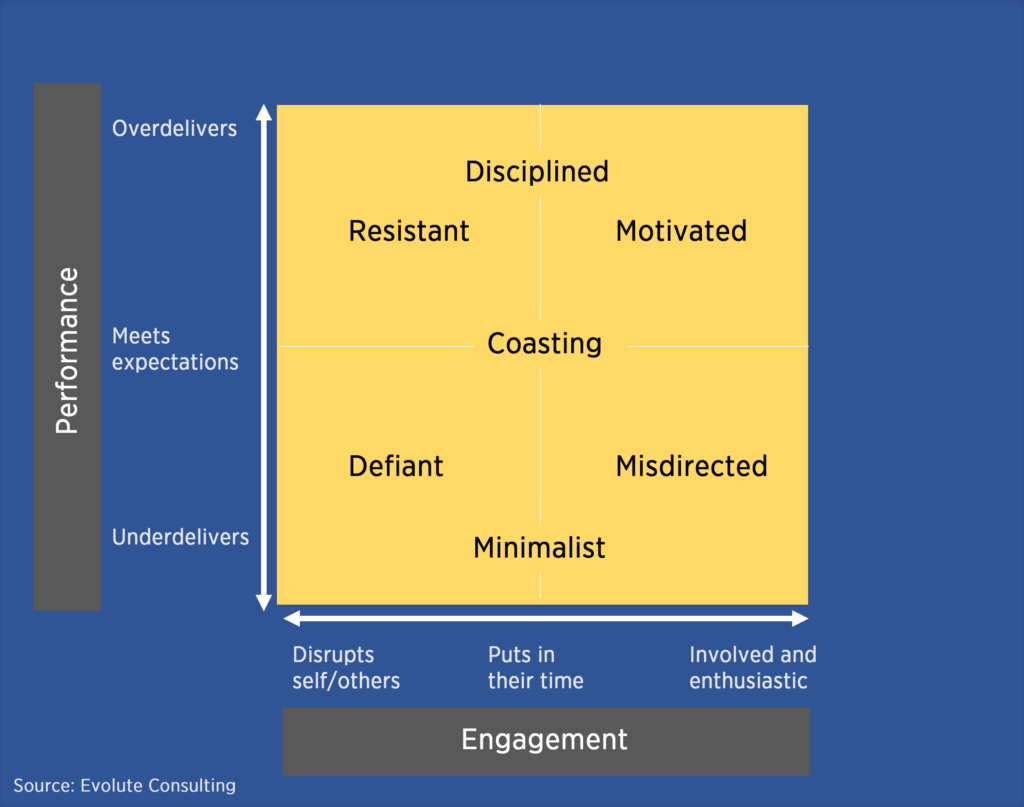Motivation techniques need to be personalized to each team member. You can do this by asking the individual what motivates them, but for most people that’s a difficult question to answer without a very high degree of self-awareness and soul-searching. So, to shortcut that process, I think about employees in a few groups:

With an initial sense of where each employee stands, it’s time to open up a discussion of what the individual may need to be more motivated.
Here are some conversation starters based on your initial motivation assessment.
Negative/Low engagement groups: Defiant and Resistant
With a negative engagement employee, the first thing I’d ask about is the presence of irritants or negative motivators. The major negative motivators are emotional pressure, economic pressure, and inertia. These elements show up as worrying about family, health, financial wellbeing, and lack of progress on key projects.* You could ask your employee questions like:
- What do you think is standing in the way of your performance?
- What would need to change for you to perform at XYZ level?
- What could I do to enable that change?
- What could you do to enable that change?
Neutral to positive engagement, with low performance: Minimalist and Misdirected
With individuals that show some commitment to the organization but do not reach their performance targets, I’d ask about skill development, role shifting and future aspirations. These are connected to purpose and potential, which are powerful positive motivators.* There may be a skill issue here, or they may not see how underdelivering in this role affects their future ambitions.
Here are some questions you could ask:
- What additional training or information do you need to achieve XYZ performance?
- What is the next step in your career? How does improved performance in this role set you up for your next steps?
- Which of your projects/tasks is the most important for you personally? For the organization?
Neutral engagement and performance: Coasting
These individuals are putting in their time and completing their work. They are not actively taking away from a positive, collaborative environment, but are not adding extra energy to their work either. It is common for employees to coast or have a coasting phase. As a first step, I’d want to know if there is anything that could get them more interested/excited. These questions would center around the positive motivators of play, purpose, and potential. These elements show up as finding joy in an element of the work experience, experiencing a connection to why their work is valuable and having access to an opportunity to learn and grow. While you are asking questions, try to assess if the person is interested in more opportunities currently, or if you should revisit this conversation in the future.
Here are some questions you could ask:
- What part of your role, if any, brings you genuine joy? How could you create time to do more of that?
- What type of projects or opportunities would excite you?
- What is the next step in your career? What would be interesting to work on and would set you up for your next steps?
- Which of your projects/tasks is the most important for you personally? For the organization?
High performance, with neutral to positive engagement: Disciplined and Motivated
Here you can try figuring out the positive motivators that are the strongest for these individuals. Your goal should be to give them what they need to stay high-performing and prevent burnout. As a leader you are fortunate to have overdelivering, neutral to positively engaged individuals on your team. These questions can help you understand what these individuals think about play, purpose and potential at work.
- What do you consider interesting or fun at work? How should we build on that?
- What keeps you engaged and focused at work? What can I do to support that?
- What growth and development opportunities interest you?
- What is the next step in your career? What would be interesting to work on and would set you up for your next steps?
Figuring out how to motivate each individual on your team can be difficult and time-consuming, but can have incredible rewards. To develop a customized plan for your team, feel free to reach out to me at lauren@evoluteconsult.com.
*Source for major motivators: HBR article: How to Keep Your Team Motivated, Remotely



